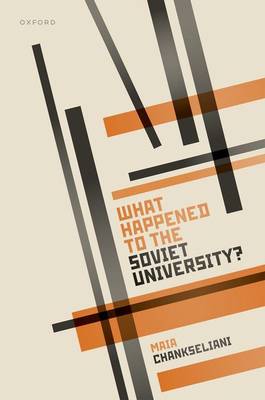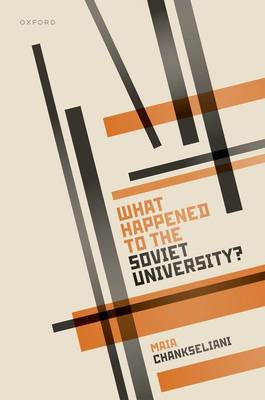
Bedankt voor het vertrouwen het afgelopen jaar! Om jou te bedanken bieden we GRATIS verzending (in België) aan op alles gedurende de hele maand januari.
- Afhalen na 1 uur in een winkel met voorraad
- In januari gratis thuislevering in België
- Ruim aanbod met 7 miljoen producten
Bedankt voor het vertrouwen het afgelopen jaar! Om jou te bedanken bieden we GRATIS verzending (in België) aan op alles gedurende de hele maand januari.
- Afhalen na 1 uur in een winkel met voorraad
- In januari gratis thuislevering in België
- Ruim aanbod met 7 miljoen producten
Zoeken
Omschrijving
What Happened to the Soviet University? explores how one of the largest geopolitical changes of the twentieth century-- the dissolution of the Soviet Union-- triggered and inspired the reconfiguration of the Soviet university. The reader is invited to engage in a historical and sociological analysis of radical and incremental changes affecting sixty-nine former Soviet universities since the early 1990s. The study departs from traditional deficit-oriented, internalist explanations of change and illustrates how global flows of ideas, people, and finances have impacted higher education transformations in this region. It also identifies areas of persistence. The processes of marketisation, internationalisation, and academic liberation are analysed to show that universities have maintained certain traditions while adopting and internalising new ways of fulfilling their education and research functions. Soviet universities have survived chaotic processes of post-Soviet transformation and have self-stabilised with time. Most of them remain flagship institutions with large numbers of students and relatively high research productivity. At the same time, the majority of these universities operate in a top-down, one-man management environment with limited institutional autonomy and academic freedom. As the homes of intellectuals, universities represent a duality of opportunity and threat. Universities can nurture collective possibilities, imagining and bringing about different futures. At the same time, or perhaps because of this, the probability is high that universities will continue to be perceived as threats to governments with authoritarian inclinations. One message to take away from this monograph is that the time is ripe for former Soviet universities to loosen their last remaining chains.
Specificaties
Betrokkenen
- Auteur(s):
- Uitgeverij:
Inhoud
- Aantal bladzijden:
- 208
- Taal:
- Engels
- Reeks:
Eigenschappen
- Productcode (EAN):
- 9780192849847
- Verschijningsdatum:
- 21/10/2022
- Uitvoering:
- Hardcover
- Formaat:
- Genaaid
- Afmetingen:
- 164 mm x 237 mm
- Gewicht:
- 489 g

Alleen bij Standaard Boekhandel
+ 370 punten op je klantenkaart van Standaard Boekhandel
Beoordelingen
We publiceren alleen reviews die voldoen aan de voorwaarden voor reviews. Bekijk onze voorwaarden voor reviews.









